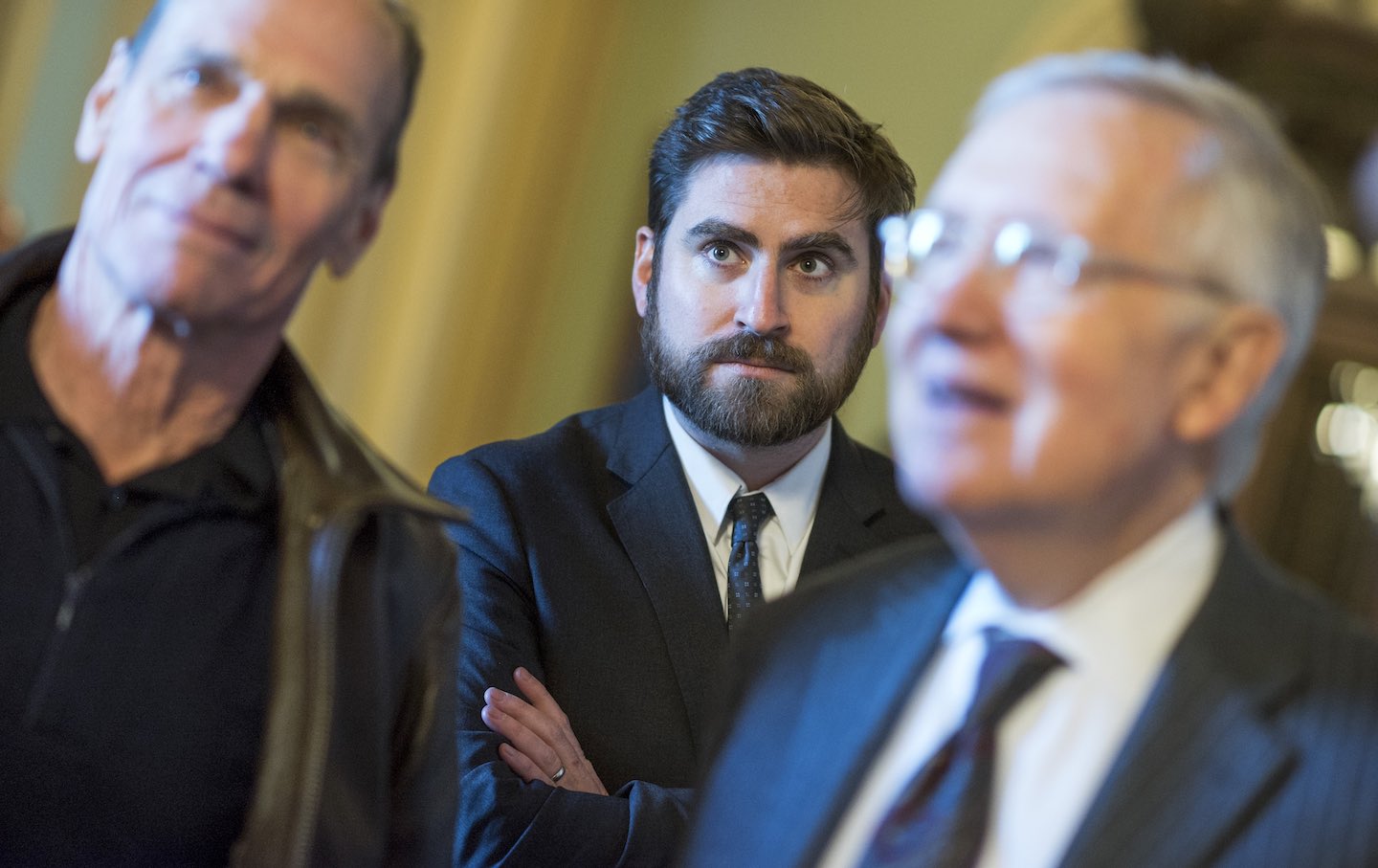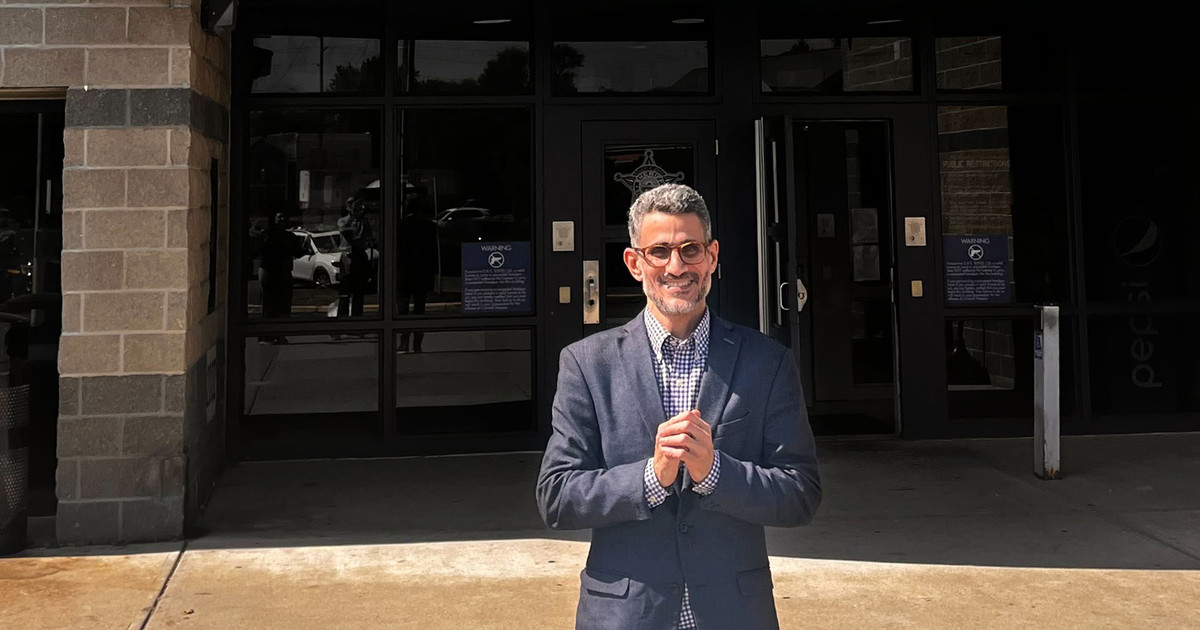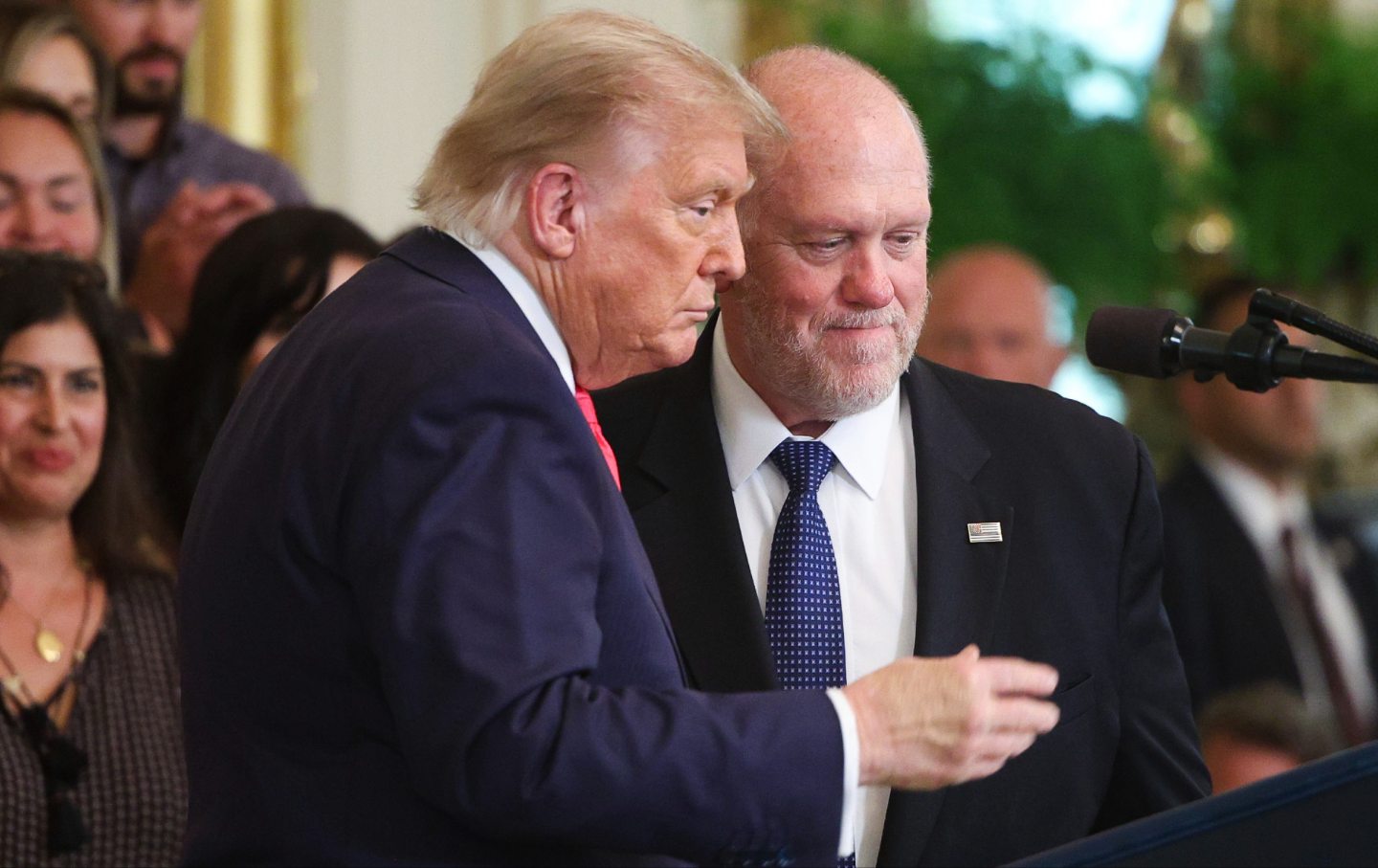
As Donald Trump’s approval ratings continue to plummet, and public support for his stances on critical issues like crime, immigration, and the economy sinks deeper, the Democratic Party finds itself at a crucial crossroads. With a pivotal government funding showdown on the horizon, the party has an opportunity to harness widespread discontent against the encroaching authoritarianism of MAGA politics. Yet, instead of capitalizing on this moment, prominent Beltway Democrats have opted to launch a new think tank, the Searchlight Institute, which seems poised to misdirect the party down a familiar, troubling path.
Founded by former Senate staffer Adam Jentleson, the Searchlight Institute embodies the careerist inclinations of a certain segment of the Democratic elite. In a recent report from the New York Times, it was revealed that the think tank aims to reduce the influence of “liberal groups” in shaping the Democratic agenda. Jentleson argues that the party’s road back to relevance requires a rejection of liberal stances on vital issues like climate change and LGBTQ+ rights. “The folks who are most to blame about Trump are the ones who pushed Democrats to take indefensible positions,” he was quoted as saying. He insists that Democrats need to adopt positions more aligned with the voters they aim to win over.
However, this reflexive shift to the right is not a new strategy. It mirrors the historical mission of the Democratic Leadership Council (DLC), an organization created in the 1980s to reposition Democrats after a series of electoral defeats. The DLC’s policy arm, the Progressive Policy Institute (PPI), promoted initiatives that led the party away from its working-class roots, favoring financial deregulation and cozying up to big tech instead.
While the DLC faded in the 2000s, the PPI remains active, proudly promoting its misleading mantra of “radical pragmatism.” The DLC’s demise came as its pro-corporate policies had already permeated the Democratic policy landscape, rendering the organization redundant. With institutions like the Brookings Institution and the Center for American Progress echoing similar centrist sentiments, discussions surrounding progressive reforms like universal healthcare or a robust wealth tax were largely sidelined in favor of minor adjustments and corporate-friendly policies.
Now, the Searchlight Institute appears ready to replicate this flawed model. Funded by a $10 million annual budget supported by a cadre of wealthy donors, including hedge fund managers and real estate tycoons, it risks entrenching the very problems it claims to address. Although Jentleson attempts to present a more confrontational style, his rhetoric resembles the self-serving narratives that have plagued Democratic politics for decades.
Interestingly, Jentleson’s own political evolution raises questions about his credibility. Once a critic of the Senate’s dysfunction, he has become a product of the very system he once sought to change. His tenure as chief of staff for Senator John Fetterman, who has shifted rightward after campaigning as a progressive outsider, further complicates Jentleson’s narrative.
The irony in Jentleson’s relationship with the Senate is palpable. Named after the hometown of late Senate Majority Leader Harry Reid, Searchlight’s alignment with Reid’s legacy is tenuous at best. Reid championed liberal causes ahead of many in the party, advocating for LGBTQ+ rights and climate action, positions that starkly contrast with Searchlight’s agenda.
The Democratic Party’s tendency to rely on insular think tanks rather than grassroots movements has created a chasm between party elites and the broader electorate. This disconnect is evident in Searchlight’s leadership, primarily composed of former Senate staffers—a demographic that historically suggests a lack of genuine connection to the working-class voters they seek to represent.
Lily Geismer, a history professor at Claremont McKenna College, aptly summarizes the situation: “The Democrats have this constant desire to build something new out of something old.” This approach often disregards the existing grassroots frameworks, particularly unions, opting instead for a top-down model that prioritizes elite consensus over authentic engagement with constituents.
The intellectual stagnation within the Democratic establishment not only perpetuates the party’s waning influence but also hinders its ability to enact meaningful change in the face of rising authoritarianism. The continuous pivot to the right has not only failed to deliver electoral victories but has also normalized a politics devoid of bold solutions to the pressing challenges facing American society.
As the party prepares for upcoming battles, including a potential government shutdown, it is disheartening to witness a strategy focused on incremental adjustments rather than transformative policies. The centrist consultants and power brokers still cling to a vision of a mythical moderate voter, ignoring the realities of an increasingly polarized political landscape.
The recent history of Democratic campaigns reveals that centrist candidates, bolstered by significant donor support and consultant-driven messaging, have repeatedly faltered against Trump’s brand of populism. Instead of fostering introspection and reconsidering their approach, the same moneyed interests continue to advocate for a rightward shift, offering little more than targeted tax credits as a substitute for genuine reform.
In this context, the Searchlight Institute’s misguided approach reflects a troubling trend within the Democratic Party. Instead of leading with courage and conviction, the party risks becoming further entrenched in a cycle of complacency and accommodation, leaving voters searching for a clear and principled stand against the threats posed by the contemporary political landscape.
The establishment’s insistence on pursuing a centrist agenda while neglecting the voices of the grassroots is a recipe for failure. As the stakes rise and the urgency for transformative change becomes more evident, it is crucial for the Democratic Party to reclaim its commitment to the principles of justice, equity, and democracy. The Searchlight Institute, embodying a myopic vision, may well be a dead end in the quest for a better future.


